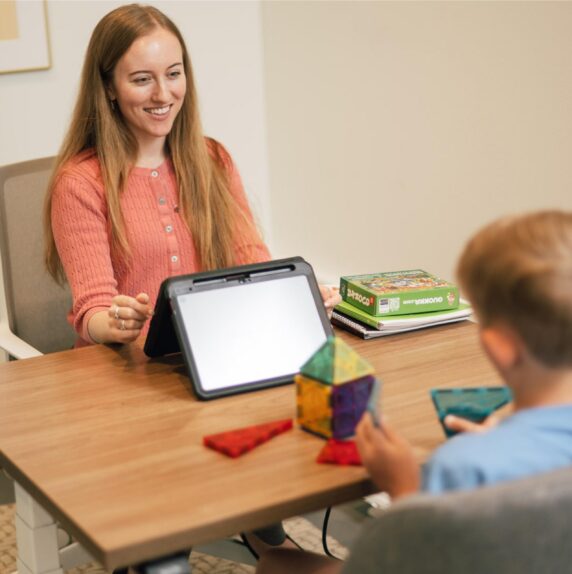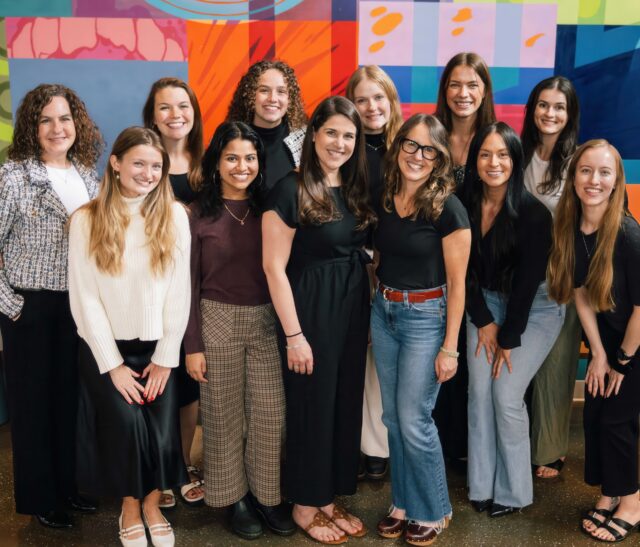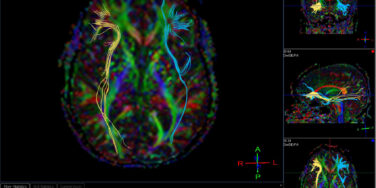Unlock Your Child’s Learning Potential
Dyslexia Testing & Diagnostic Evaluation
Dyslexia is a brain-processing difference that limits the efficiency and accuracy of reading. Our comprehensive neuropsychological evaluation can diagnose dyslexia and other learning differences, giving you a clear understanding of what’s behind your child’s reading struggles and specific guidance on the educational supports and interventions your child needs to succeed in school and beyond.
The Complex Nature of Dyslexia
Dyslexia affects how children decode words, read fluently, and understand what they’ve read. It frequently co-occurs with other learning differences (e.g., dyscalculia, dysgraphia, or ADHD) and can mask significant strengths, such as visual-spatial thinking abilities. Because learning differences in children rarely occur in isolation, we examine your child’s complete learning profile rather than focusing on a single area. This comprehensive approach helps us identify meaningful patterns and co-occurring conditions that might otherwise go unnoticed, giving you a clearer understanding of how your child learns best and what support they need to thrive academically and socially.

Recognizing Dyslexia: Common Signs and Symptoms
- Early Literacy Challenges: Difficulty learning to recognize letters, numbers, and mastering letter-sound associations
- Reading Mechanics: Difficulty sounding out words, relying more on the memorization of sight words, skipping or substituting small words like “the”, “a”, “or”, and non-fluent, choppy reading.
- Comprehension Struggles: Trouble with reading comprehension and needing to reread passages multiple times to gain understanding
- Performance Issues: Inability to finish tasks that require reading
- Avoidance Behaviors: Reluctance or disruptive behaviors during activities involving reading
- Emotional Impact: Anxiety, learned helplessness, or self-deprecating comments around learning and reading
- Genetic Component: Family history of reading difficulties, as dyslexia commonly runs in families
The Evaluation Day
Our one-day evaluations provide a complete picture of your child’s learning profile, any potential diagnoses, and a roadmap with specific strategies for support. The evaluation process includes:
- Morning parent interview to discuss your concerns and child’s history
- Child assessment activities (testing, puzzles, academic skills, hands-on work)
- Same-day parent meeting with results and recommendations
- Detailed written report delivered the following week
Our experienced team of neuropsychologists has established relationships with local experts who offer services for ongoing support like tutoring, coaching, therapy, and medication consultation. Learn more about your child’s evaluation day in our detailed overview.

I want to thank your team for the incredible work they did when we were in for our evaluation. Their collaboration and expertise helped us feel understood and provided us with the insight we were looking for. The evaluation was comprehensive, yet very targeted to our concerns.
I am a Learning Specialist at Mounds Park Academy. Many of our students have used your services for an evaluation. I recently received a report that was completed by Ashley Isaia, and I appreciated how detailed and thorough it was.
Both myself and my husband were so impressed with the thorough assessment, organization, and overall experience we had with MNNP. We understand this is going to be a long journey, but feel informed and empowered. We had a meeting with the school today and I was excited to see in the draft that many of the recommendations from Dr. Adams were already listed.

Diagnostic Care from a Compassionate Team
We provide evaluations in the Minneapolis/St. Paul area through comprehensive, data-driven evaluations in two welcoming settings. Whether you visit our Cathedral Hill or Wayzata location, you can expect a caring and compassionate team. Our neuropsychologists work hand-in-hand with our team of assessment specialists (psychometrists) to ensure that your child has a positive and engaging evaluation experience. Our mission is to provide a comprehensive diagnostic evaluation that empowers children of all ages to understand their brain and go forward confidently.
Frequently Asked Questions
Have questions about dyslexia and co-occurring conditions? Browse the list below for helpful answers. If you’re looking for details about our evaluation process for children and adolescents, including what to expect, please visit the FAQ section on our Evaluations for Children & Adolescents webpage.
What is dyslexia?
Dyslexia is a neurodevelopmental learning difference that affects how the brain processes written language, primarily impacting reading decoding, fluency, and/or comprehension. Dyslexia is present when there is an unexpected deficit in one or more aspects of reading despite intact intelligence and adequate instruction.
Beyond reading challenges, individuals with dyslexia often demonstrate:
- Exceptional creativity, problem-solving abilities, and innovative thinking.
- Strong visual-spatial reasoning and hands-on learning capabilities.
- Remarkable strengths that traditional educational systems may not fully recognize, including big-picture thinking and an entrepreneurial mindset.
- Genetic ties to reading difficulties, often present in other family members.
- Other learning differences include ADHD, dyscalculia (math difficulty), or dysgraphia (writing difficulty).
People with dyslexia often possess unique perspectives and abilities that, when properly supported and encouraged, can lead to breakthrough innovations.
Can dyslexia affect math skills?
Yes, dyslexia can impact how students learn math, particularly for story problems, which require reading instructions, memorizing math facts, or managing multi-step procedures. Difficulties with sequencing and verbal processing can also interfere with performance in these areas.
Some students with dyslexia have strong visual-spatial and nonverbal reasoning abilities. When instruction taps into these strengths—through visual models, hands-on tools, and concept-based teaching—math can become less frustrating and more engaging.Learn more in our article, “Teaching Math to Students with Dyslexia: Harnessing Visual-Spatial Strengths.”
What is stealth dyslexia?
Stealth dyslexia is a term used when an individual has very strong verbal intelligence and is able to “mask” or compensate for their reading difficulties by tapping into their strong vocabulary repertoire to guess words based on context. They often use their strong inferential reasoning to discern meaning from passages despite underlying or “stealth” challenges with decoding or fluency. Stealth dyslexia often goes unnoticed because individuals with this condition can read silently at or above grade level, but they may struggle with sounding out words, oral reading fluency, and/or spelling. This discrepancy is particularly common in gifted students, sometimes called “Twice Exceptional” or “2E,” who use their cognitive strengths to compensate for their reading difficulties.
Because stealth dyslexia can remain hidden due to these compensatory strategies, it may not be recognized until later in a student’s academic career, when reading and writing demands increase.
For a more in-depth understanding of stealth dyslexia, including its signs and implications, you can read the full article “Stealth Dyslexia: The Hidden Struggle Behind Brilliant Minds.“
Why is early intervention important for children at risk of dyslexia?
Early intervention is crucial for children at risk of dyslexia because it leverages the brain’s plasticity during formative years, significantly improving learning outcomes. Identifying children early—especially those with a family history of dyslexia or noticeable challenges in early reading skills—can significantly benefit their success in school and life.
Early warning signs include:
- Difficulties with rhyming, recognizing letters or sounds, or speech articulation challenges
- Struggles to name familiar objects quickly or have limited vocabulary compared to their peers
- Low scores in phonological processing and rapid automatic naming from neuropsychological evaluations
Implementing structured literacy programs, such as the Orton-Gillingham approach, at a young age can be a proactive step. These programs emphasize phonics and the ability to connect sounds with corresponding letters and words, allowing children to develop the skills necessary for decoding text. Such individualized instruction helps children experience repeated success in learning to read, building confidence, and reducing frustration. Brain imaging studies confirm that interventions are most effective when implemented early, as young brains demonstrate greater capacity for the neural changes needed to support reading development and show measurable improvements in neural processing. However, it’s never too late to implement learning strategies for dyslexia, and the benefits are still realized even among adults.For a more in-depth understanding of early dyslexia intervention, read our full article, “Unlocking Literacy: Early Dyslexia Intervention.”
What is the Science of Reading, and how does it support children with dyslexia?
The Science of Reading encompasses decades of interdisciplinary research on how children learn to read and why some struggle. It emphasizes two essential components: word recognition (including phonics and decoding) and language comprehension.
Key elements of the Science of Reading for dyslexic children include:
- Structured Literacy—explicit, systematic instruction in phonics and sound-symbol relationships
- Focus on helping children decode words accurately and fluently as the foundation for comprehension
- Recognition that children with dyslexia require more intensive, systematic approaches to develop the same neural pathways that support reading
To explore this topic further, read our “The Science of Reading” article.
How does dyslexia affect a child’s social and emotional well-being?
Dyslexia can significantly impact a child’s social and emotional development. Children with dyslexia often face challenges in reading and writing, which can lead to frustration, low self-esteem, and feelings of inadequacy.
Common effects include:
- Withdrawal from social interactions and avoidance of academic tasks
- Behavioral issues as coping mechanisms for academic struggles
- Decreased self-confidence and feelings of being “not smart enough”
- Adverse impacts from misunderstandings by peers and educators
Early identification and support, focusing on academic skills and emotional resilience, can help children build confidence and experience academic success. For a more in-depth understanding of the social and emotional impacts of dyslexia, read our full article, “Social and Emotional Impacts of Dyslexia.”
Is there a link between dyslexia and ADHD, and how common is it for someone to have both?
Yes, there is a significant association between dyslexia and ADHD. Research found that approximately 25% to 40% of individuals with ADHD also have dyslexia. This co-occurrence is more frequent than would be expected by chance, suggesting shared underlying factors.
Genetic studies have revealed substantial overlap between dyslexia and ADHD, with one notable study identifying 49 shared genetic regions and 174 associated genes. This genetic intersection helps explain why these disorders often appear together.For a more detailed exploration of the genetic links between dyslexia and ADHD, see our “New Research on ADHD and Dyslexia Genes” article on the topic.
Related Articles
Transform Your Child’s Challenges into Strengths
Through our comprehensive assessment, you can gain a clear understanding of how your child learns best—including their unique reading, writing, and cognitive profile. Our dyslexia testing results in expert guidance to help your child build confidence and achieve lasting academic success.




